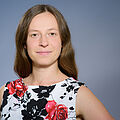IDoS 2019: Meet the experts
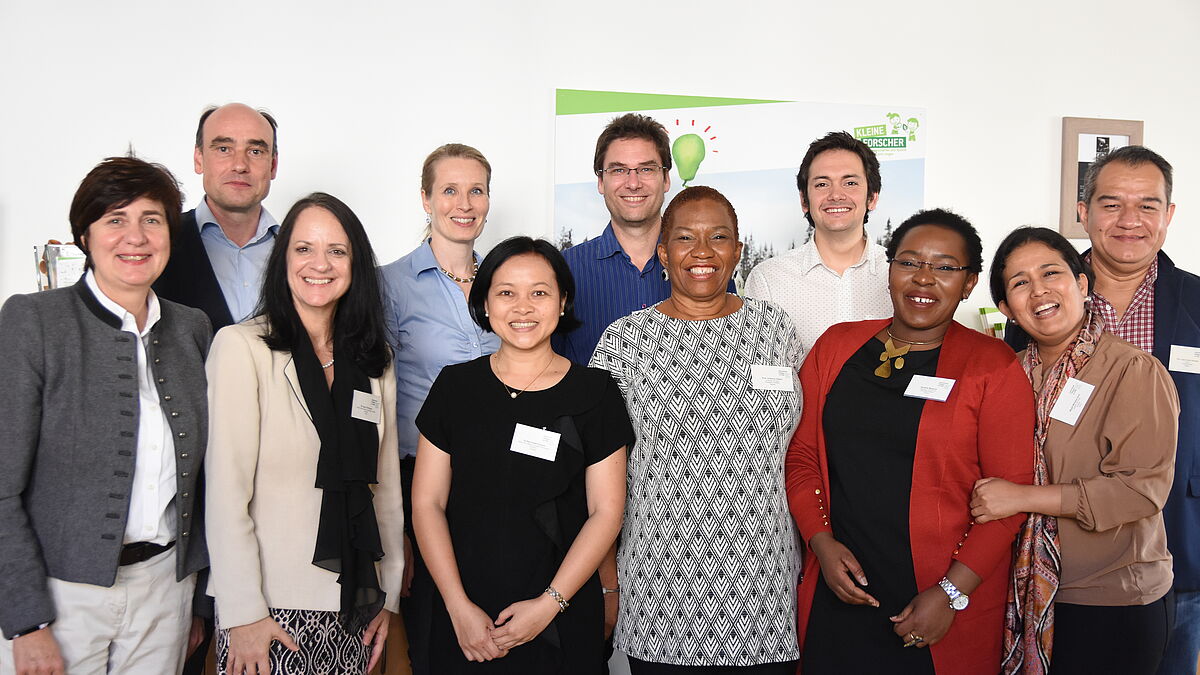
Eleven members of the programme committee for our upcoming conference, “International Dialogue on STEM Education” 2019 (IDoS 2019), visited the “Haus der kleinen Forscher” Foundation in Berlin in October to elaborate a concept to make the vision of a “sustainable society” a reality; two members of the committee participated via video stream. In the course of the two-day meeting, the committee created a programme for the upcoming conference, addressing questions such as: “How can IDoS 2019 close the gap between theory and practice?” and “How can we create a conference that actually leads to change?”
The programme committee comprises 14 experts from science and practice from 12 countries all over the world. Initially, the aim of the two-day meeting was to elaborate two topics for the conference – "STEM Education for Sustainable Development" and "Digital Learning Formats in Adult Education” – by addressing the following questions: What are the global perspectives and relevant aspects of the respective topics? How can we find the core questions of relevance but still keep an eye on possible trends in the process? What are the best possible working formats and who are potential input givers and speakers for the conference?
Using STEM as an educational strategy to create sustainable societies in the 21st century
In the end, however, the programme committee decided that the conference should have only one main topic – “STEM Education for Sustainable Development” – thereby facilitating the development of a universally applicable strategy for achieving local change by addressing global sustainable development goals. During IDoS 2019, the participants from 25 countries throughout the world will work together to develop standards for STEM Education for Sustainable Development worldwide. The participating practitioners, scientists, and decision-makers will have enough time to share ideas, to discuss, reflect and learn from one another, and, in the words of committee member Mayte Morales, to learn that “What will help us is doing!“
Carol O’Donnel about the necessity of an “International Dialogue on STEM Education” 2019
Ongoing work on the conference programme
For the “Haus der kleinen Forscher” Foundation, it was the first partly digital international meeting. Two members of the group, from Canberra and Singapore, could not travel to Berlin because of other responsibilities but participated via digital meeting software. The programme committee meeting was just the kick-off for the development of the conference programme. The fine-tuning of the programme is still a work in progress. To this end, the programme committee formed three subgroups devoted to the following topics, respectively: “Theory, Positions, Models, Frameworks”, “Reflected Practice and Action”, and “Action Planning”. In the interests of sustainability, and in order to find out how digital resources can be used to facilitate exchange and networking after the conference, the next meetings will be totally digital.
We will keep you updated.
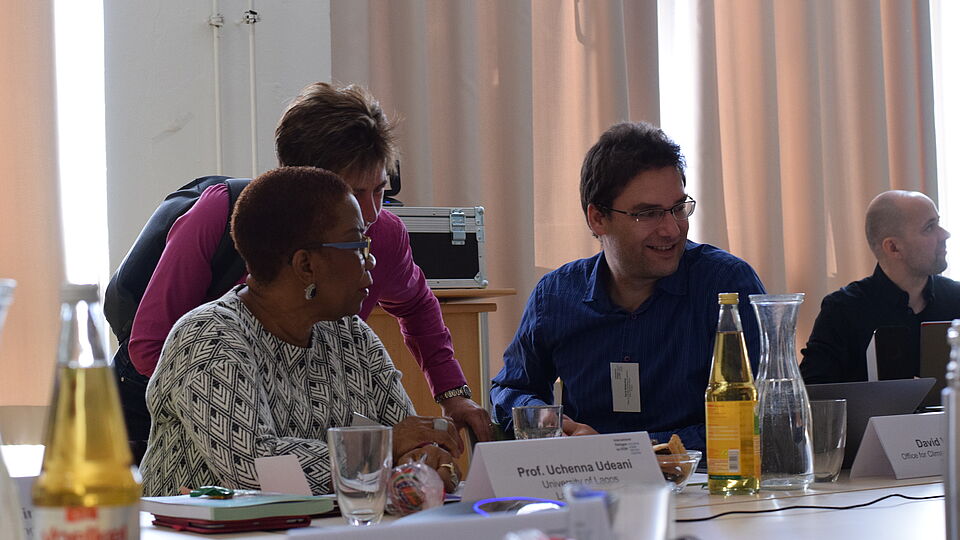
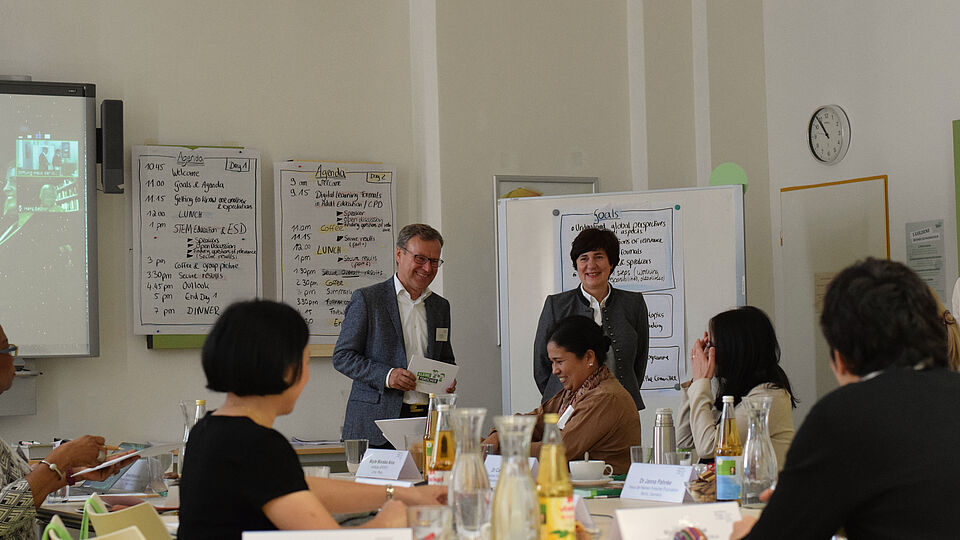
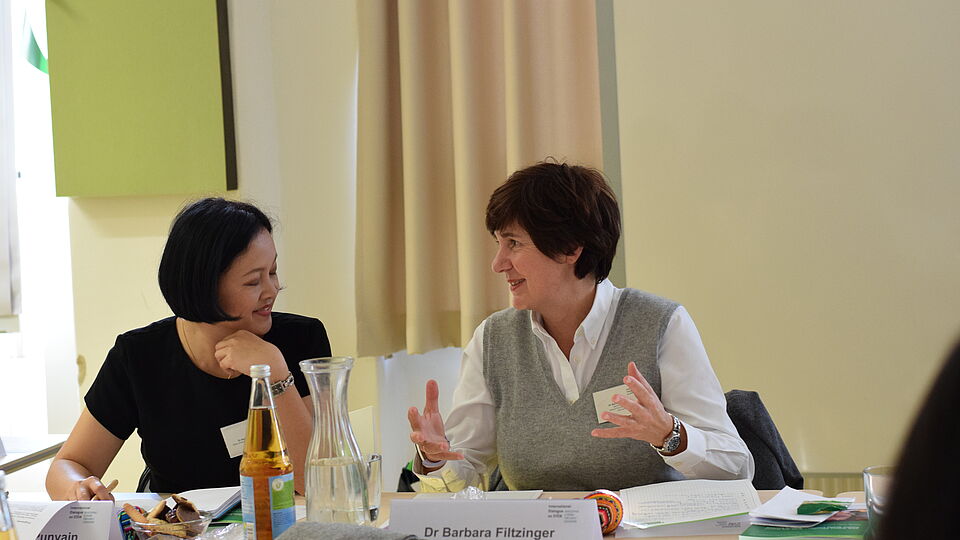
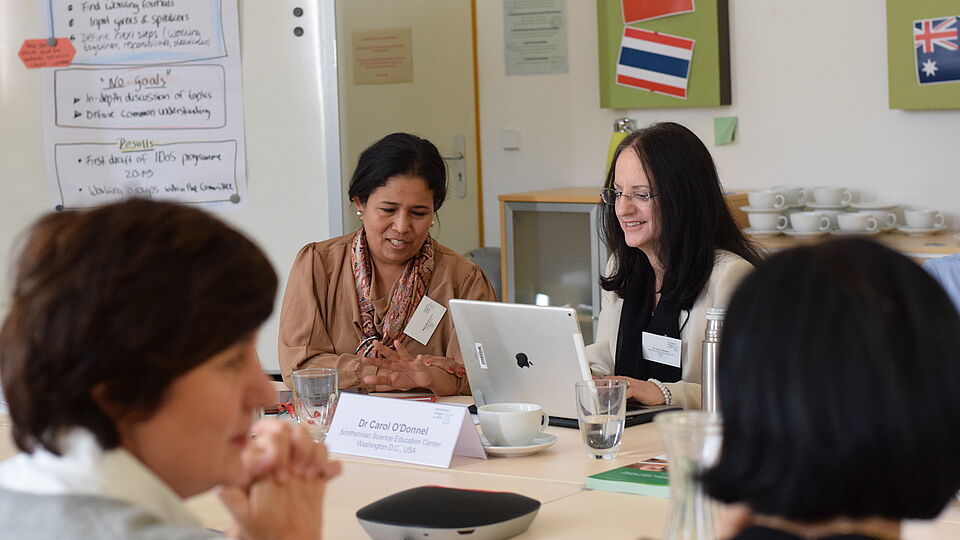
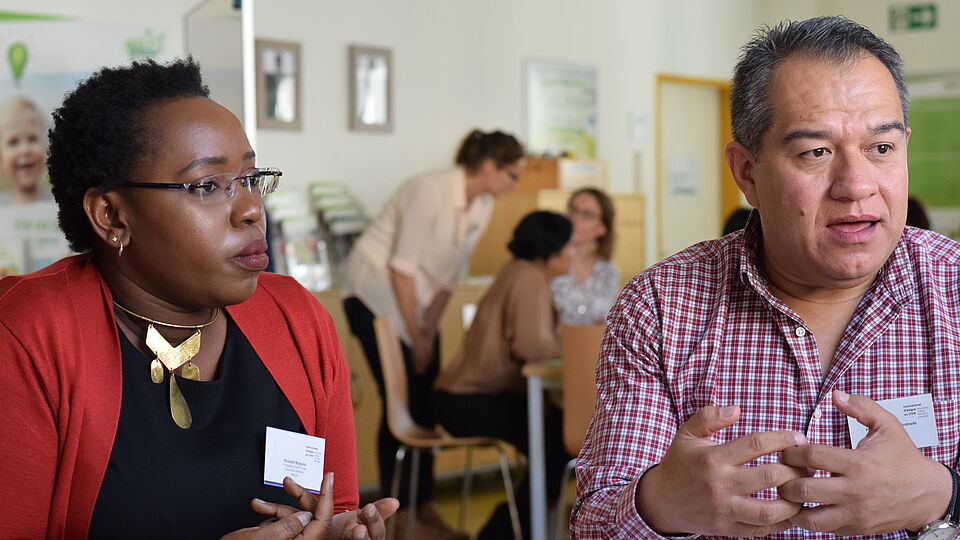
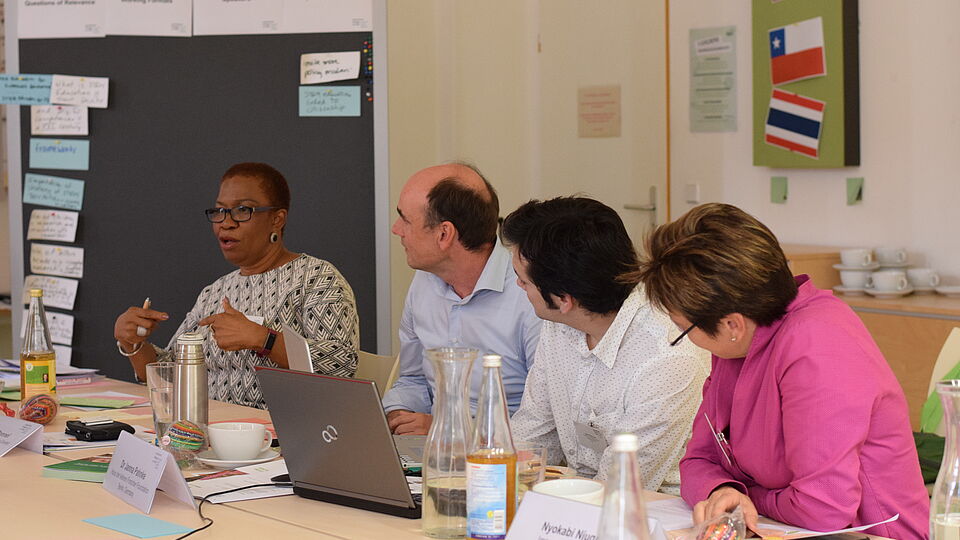
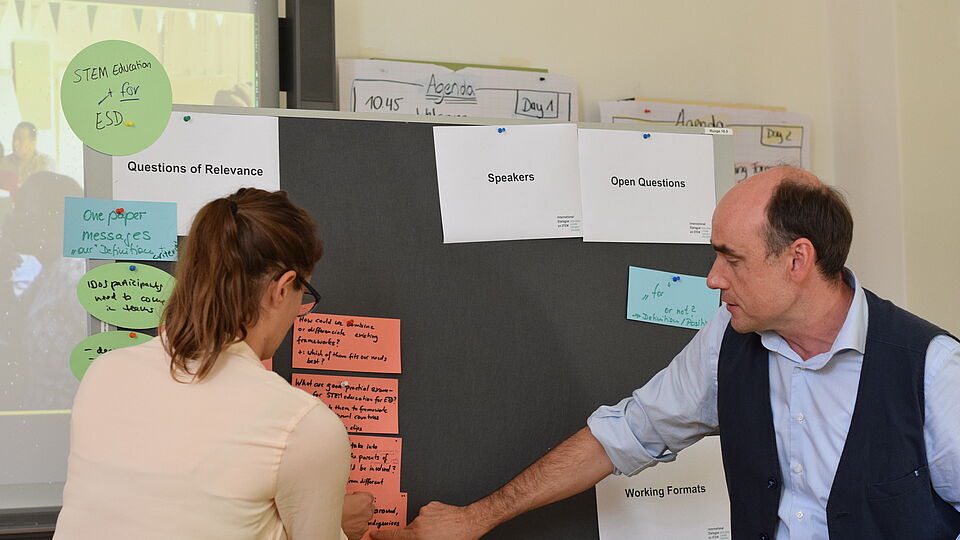
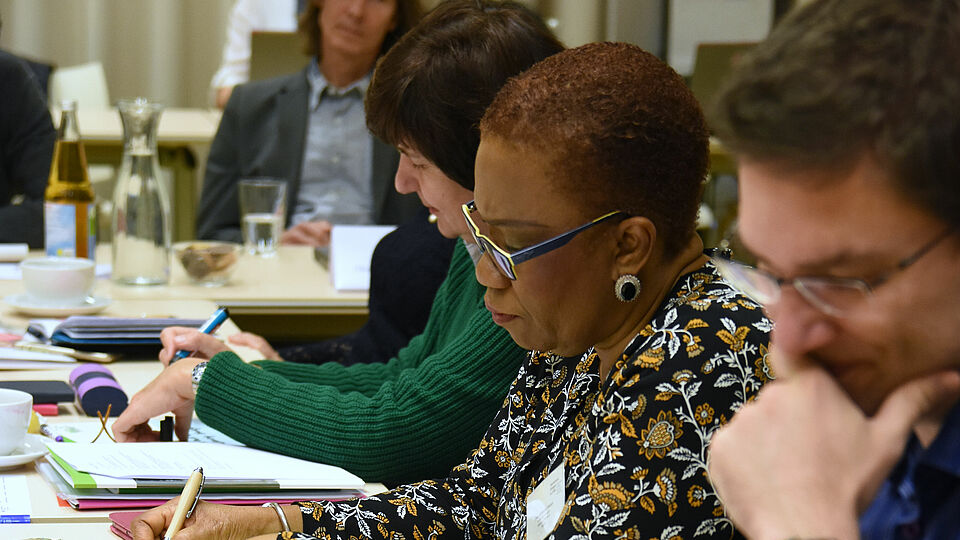
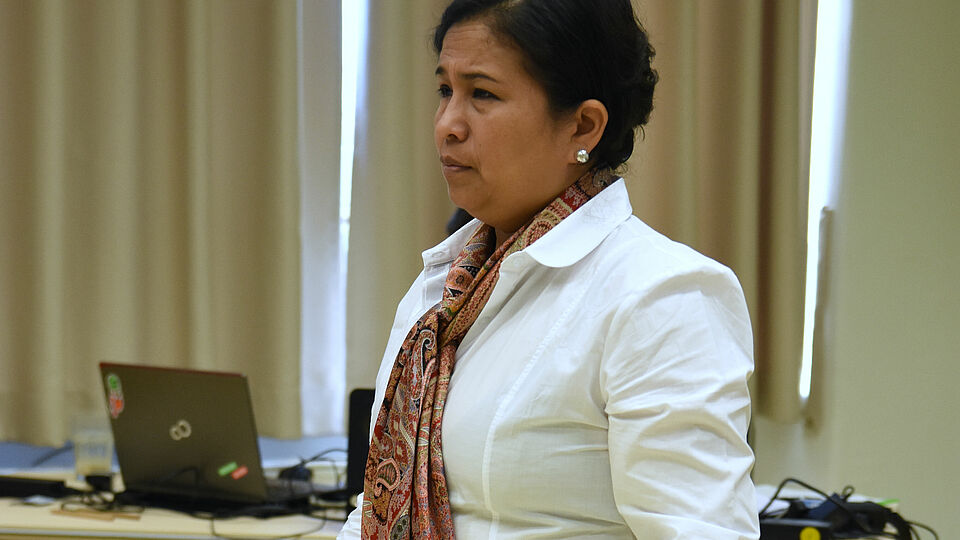
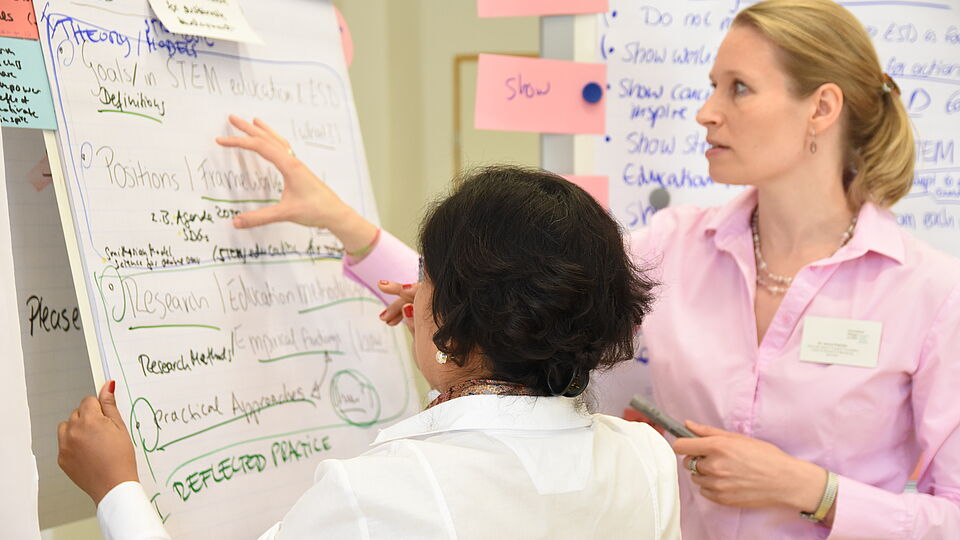
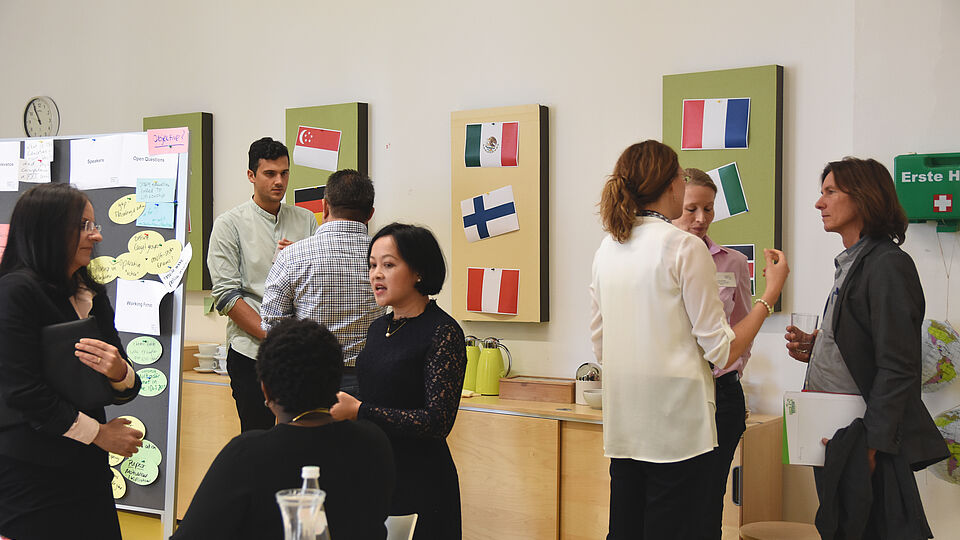
About the Conference
Title: International Dialogue on STEM Education 2019 (IDoS 2019)
Initiators: "Haus der kleinen Forscher" Foundation and Siemens Stiftung
Target group: Scientists, decision-makers in politics and civil society, and representatives of leading initiatives worldwide that bring together STEM and ESD
Main topic: STEM Education for Sustainable Development
Conference dates and venue: 5 and 6 December 2019 at the Robert Bosch Stiftung, Berlin, Germany

